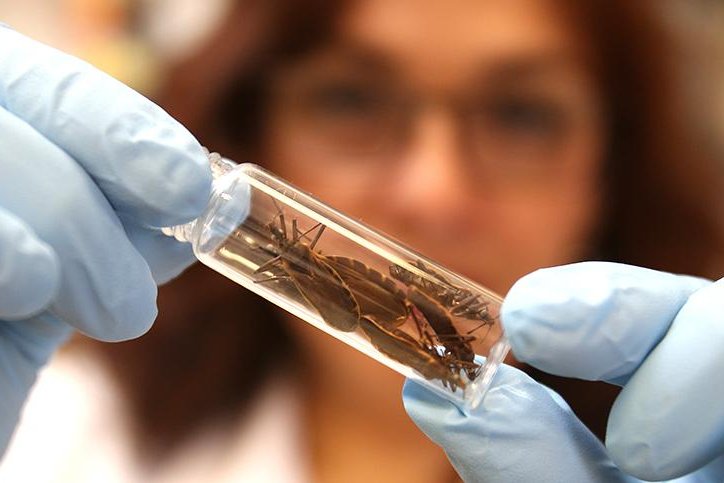Chagas disease is spread to humans through the feces of kissing bugs. Photo by J.R. Hernandez /University of Texas at El Paso
EL PASO, Texas, Sept. 9 (UPI) -- The risk of contracting Chagas disease in Texas is higher than researchers thought, based on the number of insects found in a new study to carry the parasite that causes it.
Triatominae, also known as "assassin bugs" or "kissing bugs," carry the Trypanosoma cruzi parasite, which causes Chagas disease. The parasite is spread to humans by the insect's feces, which enters the body through its bite wound. It also can be spread through food and drink contaminated by the feces.
The high rate of heart disease found along the Texas-Mexico border may be attributed to the parasite being more widespread than researchers knew, they said.
"It surprised me that so many of them were carrying the parasite," said Dr. Rosa A. Maldonado, an associate professor of biological sciences at the University of Texas at El Paso, in a press release. "I was expecting to have some, but this is quite high."
Researchers caught 39 triatominae in Hudspeth County, about 100 miles north of the border, and tested them for the parasite. They found 61 percent of the insects -- 24 of the 39 -- tested positive.
About 6 to 7 million people are infected with Chagas worldwide, most of whom are found in Latin America, according to the World Health Organization.
While the disease is curable if caught early, more than half of people infected with the parasite do not show symptoms. Those who do, about 2 months after their initial infection, initially have a skin lesion or a purple swelling of the lids of one eye, and eventually develop fever, headache, enlarged lymph glands, pallor, muscle pain, difficulty in breathing, swelling and abdominal or chest pain.
About 30 percent of those infected develop cardiac disorders, and 10 percent develop digestive, neurological or a combination of disorders because the parasite hides mainly in heart and digestive muscles.
"Doctors usually don't consider Chagas disease when they diagnose patients, so they need to be aware of its prevalence here," says Maldonado.
The study is published in Acta Tropica.















